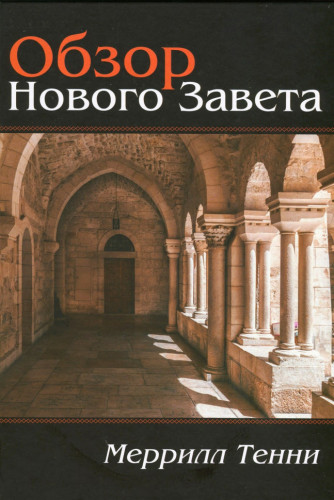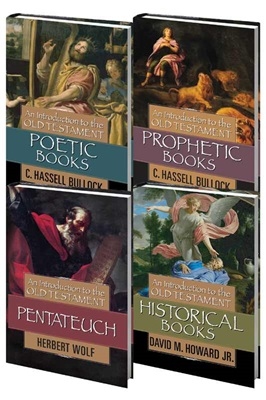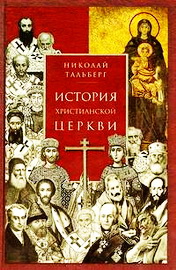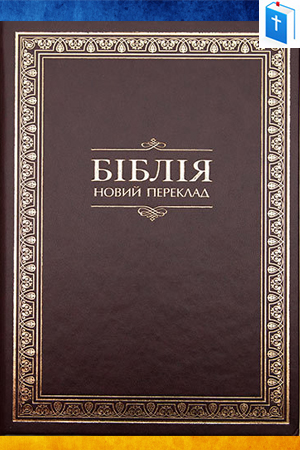
An Introduction to the Old Testament - Moody Publishers - книги и модуль BibleQuote
An Introduction to the Old Testament - Moody Publishers
Chicago: Moody Publishers, 1993
ISBN-10: 0-8024-4155-6
ISBN-13: 978-0-8024-4155-3
The OT’s historical books are at one and the same time inviting and forbidding. They are inviting because they contain many familiar characters, such as Samson and Delilah, David and Goliath, David and Bathsheba, Solomon and his wives, Queen Esther, and many others. They also are inviting because they contain many delightful and moving stories. Who does not delight at the miraculous provision of a son to Hannah, the warm friendship between David and Jonathan, or Elijah’s triumph over the prophets of Baal? Who is not moved by Ruth’s loyalty to Naomi, David’s largesse toward Mephibosheth, or Nehemiah’s deep faith?
But these books are also forbidding to many people because they contain many obscure characters and tangled plots. Who can easily remember the names of the many judges, let alone follow the details of their lives? Who can easily trace the intrigues involved in the succession to David’s throne? Who can remember the names of the kings of Israel and Judah? They also repel people because they contain many strange and even repulsive events. Who does not shudder at the complete annihilation of the Canaanites in Joshua’s day or at the slaughter of the Persians in Esther’s day? Who is not repulsed at the graphic description of Ehud’s killing of Eglon in Judges 3? Who does not puzzle about the long day in Joshua 10, the appearance of Samuel from beyond the grave in 1 Samuel 28, or Mesha’s strange sacrifice of his son in 2 Kings 3?
The OT’s historical books contain much more than delightful or strange stories, however. They are an important repository of God’s revelation of Himself. In the details of the stories, as well as (or perhaps especially) at the higher levels of groups of stories, we see great themes unfolded—themes that tell us about God and His love for His people and the world, His holiness, His worthiness, and His unfolding plans for His people and the world. In the end, these things are much more important than the fortunes or foibles of individual characters. These larger themes bring the OT historical books into a proper focus and into harmony with the other books of the Bible.
As noted in chapter 1, this book is an invitation to read the OT historical books. For readers with little experience in reading these historical books, this book is intended to serve as a guide, elucidating their contents and messages. It also is intended to teach readers how to read the Bible, paying attention equally to microscopic details and to macroscopic structures. It is in the details, as well as in the large-scale sweeps, that we learn about the messages of the biblical books and, ultimately, about God. Such readers will probably serve their own interests best by reading the text and ignoring the footnotes.
This book also is intended to serve readers with some experience in reading these OT books. Such readers will find familiar themes elucidated in these pages and familiar historical, critical, and theological questions addressed. The hope is that new light will be shed on many questions for them and that the footnotes and bibliographies will serve to point them into both classic and recent literature, representative of the best of evangelical and nonevangelical scholarship alike.
* * *
Nonliterary Prophecy
Running parallel to literary prophecy in its earlier phase was the preliterary or nonliterary prophetic movement, so called because it did not leave a literary legacy, except as it impinged upon the history and fortunes of the monarchy (as found in Samuel, Kings, and Chronicles). Judging from OT literature, the prophets did not become a significant factor in religious history until the rise of the monarchy. Samuel was both a transitional and foundational figure in that process. The records of nonliterary prophecy are not entirely lost to us, for they are interwoven into the histories of Israel as they are told in the books of Samuel, Kings, Chronicles, Ezra, and Nehemiah.
In fact, the author of Kings viewed the prophetic movement as the only hope of reformation in the Northern Kingdom, particularly in view of the religious apostasy and moral corruption of the northern monarchy for which Jeroboam I established the determining and insurmountable precedent. The religious reforms that were instigated in the north were the direct result of such courageous prophets as Elijah and Elisha. But in the view of the writer of Kings, virtually no reforming elements originated with the northern kings themselves. In stark contrast, the religious and social reforms in the Southern Kingdom, ruled by the Davidic dynasty whose beginnings and continued existence were tied directly to prophetic authority, originated with the kings. That is especially evident in the religious revivals initiated by Asa, Jehoshaphat, Hezekiah, and Josiah. The only literary prophets mentioned by the author of the book of Kings are Jonah and Isaiah. Thus not even honorable mention of the majority of the literary prophets is part of the plan of that writer. That silence is an enigma. Its explanation, however, is probably to be found in the purpose of the book, especially its deep respect for the legitimacy of the Davidic dynasty, which came into being through the instrumentality of the prophets, particularly Samuel and Nathan. The author’s main interest lay in the Judean monarchy and its internal power to survive and revive. Perhaps the author wrote his history as a record of hope that David’s house would rise again. The release of Jehoiachin from prison, with which the book ends, implies that hope.
The main sources of our knowledge about the nonliterary prophets, the books of Samuel and Kings, disclose the public life of those individuals. But like their literary successors (sometimes called the classical prophets), they had their private lives too. They maintained private domiciles, where they were on occasion consulted (1 Kings 14:4; also 13:18). However, their understudies, the “sons of the prophets,” maintained some kind of communal existence. We see them involved in a unified effort to move their residence to the Jordan River during the time of Elisha (2 Kings 6:1–7). Yet, in light of 2 Kings 4:1 it seems safe to assume that they led a life with the ingredients of that of a private citizen. Here the wife of one of the sons of the prophets appeals to Elisha on behalf of her two children, whom her dead husband’s creditor threatens to enslave.
Some evidence points to the receipt of fees for prophetic services. That was certainly true of the court prophets, and in some cases it may have been true of others. In 1 Samuel 9:8 Saul’s servant had money to pay for the services of Samuel to locate the asses of Kish. So also Jeroboam sent a gift by his wife when she went to inquire of Ahijah (1 Kings 14:3). Such a practice was even known by Ben-hadad of Syria, for he sent Elisha a gift by Hazael when he wanted to know whether he would recover from his sickness (2 Kings 8:8). Yet we should also note that these prophets could not be manipulated by remuneration. Elisha refused to accept the gift that Namaan brought him when he requested healing of his leprosy (2 Kings 5:16),6 and his servant Gehazi was struck with leprosy when he accepted the gift (vv. 24–27).
The psychological orientation of the nonliterary prophets reveals that they sometimes had ecstatic experiences, especially in association with the bands of prophets (1 Sam. 10:5–13). They were given to dreams, visions, ecstasy, and divining. The word of Yahweh to Micaiah ben Imlah took the form of a vision (1 Kings 22:13–23), and Yahweh’s word to Nathan regarding the construction of the Temple was described as “in accordance with all these words and all this vision” (2 Sam. 7:17). The visions often occurred at night.7
Generally these prophets were not concerned with moral issues as such, except as they had a direct bearing upon the destiny and welfare of Israel. So although they spoke to individuals rather than the nation, their fundamental concern was national destiny. In that sense the literary or classical prophets were truly their spiritual successors. The non-literary prophets were a kind of conscience to the king, admonishing him to faithfulness to Yahweh. There was no set pattern of consultation. Kings called on prophets, and prophets called on kings.





Комментарии
Пока нет комментариев. Будьте первым!